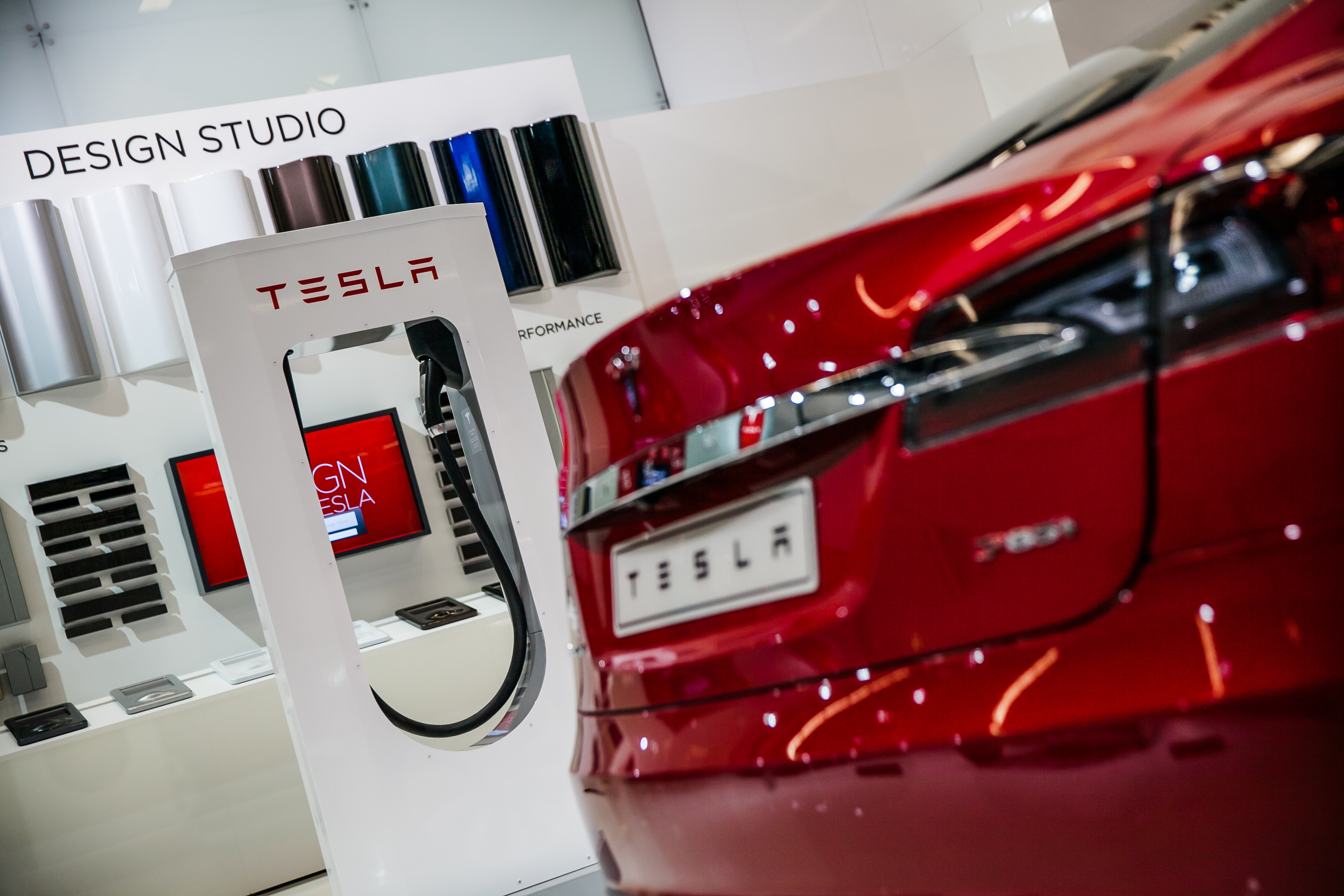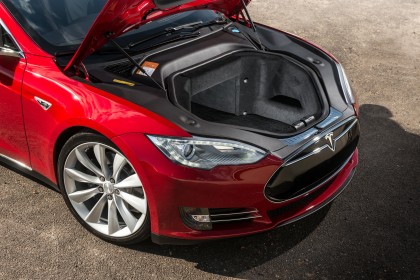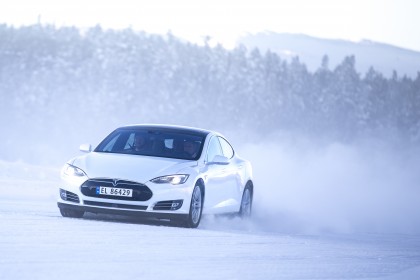Tesla's premium DLC battery idea could easily backfire
Shock to the system

There are few companies that command more good will from its customers than Tesla. Heck - this is a company that has fans who cannot even afford what it is selling. This enthusiasm is great for business: Even though we still know very little about the Tesla Model 3 it has already clocked up around 400,000 pre-orders. Working in the Tesla marketing department must be the easiest job in the world.
But I'm starting to wonder if one the company's recent announcement could potentially bring this boundless enthusiasm to a screeching halt.
A refreshed version of the Tesla Model S is set to come in two different models: The Model S 70 with a 70 kWh battery, and the Model S 75 with a 75 kWh battery. So far, so ordinary, as offering standard and "deluxe" models of cars has been around for decades, but here's the thing: Whether you buy a Model S 70 or an 75, both will come with exactly the same 75 kWh battery, presumably because it doesn't make financial sense for Tesla to bother differentiating between two different models throughout the production process.
If you buy the Model S 70 version, however, its battery capacity will be limited by the car's software, rather than any hardware.
In other words, unless you pay Tesla an additional $3000 (around £2000), the company is artificially limiting the capabilities of your new car. The question is, will customers feel angry that these artificial limits are being imposed?
Not unprecedented
Looking at the wider car industry, this arguably isn't such a new phenomenon; old-fashioned combustion engine cars have been doing it for a while. Tom Ryan, director of UKVehicle.com, explained this to me:
The Model S 70's battery will be limited by the car's software, rather than any hardware
Sign up for breaking news, reviews, opinion, top tech deals, and more.
"This practice has been going on for a long time in combustion engined cars - many different specification vehicles now use the same fundamental platform, and engine components with performance varied according to trim level by making changes to the ECU [Engine Control Unit] alone. On that basis, this move from Tesla is really no different."
In the petrol world, this has led to a cottage industry of third-party "chip tuners", who will take cars and tweak the software to unlock better performance.
However, there is one crucial difference with what Tesla is doing - which could feed into a larger issue. Unlike traditional ECU upgrades, Tesla is offering its own aftermarket upgrades. If you purchase the base Model S 70 and later decide that what you really want is a Model S 75, then you can simply hand over another $3250 (a $250 premium on buying the upgrade at purchase) and someone at Tesla headquarters will press a button that tells the software in your car to use the full battery capacity.

It can do this because all Teslas are connected to the internet (it's the same reason the company can regularly update the on-board software to enable new features like autopilot).
While the result is functionally no different from hacking an ECU, the way this upgrade is framed is important to how we perceive it. This is because of the way we understand pricing on a psychological level.
As Richard Thaler points out in his book Misbehaving, if we behaved rationally we'd only look at the bottom line and figures as a guide. But as we're humans, we very definitely don't. To paraphrase one of his examples, people will happily travel all the way to the other side of town to save $10 on a $20 toaster - but won't bother if it is saving $10 on a $1000 TV - even though in both cases, it is functionally the same.
Conversely, the difference between losing $10 and $20 feels more painful than the difference between losing $1300 and $1310.
The way the update is framed is important to how we perceive it
Perhaps one of the most striking findings out of this sort of research is that of the value function in Prospect Theory, the work by Behavioral Economists Daniel Kahneman and Amos Tversky, who transformed our understanding of the psychological side of economics.
The value function suggests that we fickle humans feel a loss more than we feel a gain. Simply put, the amount of happiness you might get from finding £100 on the ground would not outweigh the pain might feel if you lost $100 from your wallet.
And this is where the Tesla pricing comes in. Could it be that, because Tesla is pricing the two Model S' differently - despite identical batteries - it might feel less like they are selling something a little extra, and more like they are taking something away from the consumer, like a penalty?

David J Reibstein, Professor of Marketing at the Wharton School at the University of Pennsylvania, thinks there might be something in this. When I took my hypothesis to him, he cited what we know from Prospect Theory and said, "Knowing that it already has a higher capability and the costs to manufacture are already incurred, I am quite confident that if this becomes widely known there will be a big consumer pushback."
Imagine if you bought a new iPhone, only to discover that you could only charge the battery up to 90% unless you went into the App Store and paid Apple another £50. Suddenly, Apple would transform from your provider of digital joy into a cynical rip-off merchant.
With existing ECU tweaks, there's still the illusion that cars are slightly different: If you want an engine boost, you need to do your research and go to a third party rather than Ford. But with this new Tesla pricing, it isn't just something the nerds will know about - it's part of the business model.
Disc-locked content
It brings to mind the controversial practice of disc-locked content in games. Downloadable content (or DLC) is now standard for most Triple-A games, as a means for developers to squeeze more cash from gamers in exchange for extra maps, outfits and so on. Usually this content is delivered how you would expect: downloaded from the internet onto your console.
But "disc-locked" DLC is slightly different. On games like this, the DLC is already stored on the disc that the player owns - and when they complete a microtransaction on the Playstation Store, all they are doing is paying to access previously restricted files on the disc.
Now, functionally this is the same. Whether delivered via internet connection or disc, the content will still have to have been developed by coders and artists who need paying, and either way the player still gets more content for their game.
But for irrational humans, the fact that the new content is coming from the disc in their machine rather than a distant server leaves an unpleasant taste in the mouth. Unlike with genuinely downloadable DLC, they already feel as though they have already paid for the disc.
Will people have the same feelings towards Tesla? Won't car owners already feel that having paid $70,000 for a new car, they should be able to use the whole battery which they already own?
I fear this could be a misstep for Tesla. For a company that is a member of a very small club of companies that many people genuinely love (alongside perhaps just Apple and Nintendo), this seems like a risky move to make. And if consumers do start to kick off, let's hope that Tesla has programmed its autopilot to know how to U-turn.